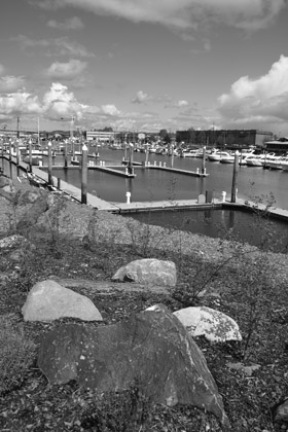The City of Tacoma has been notified by the Washington State Attorney General’s Office that the Washington State Department of Transportation (WSDOT) may seek compensation from the City if they are sued for costs related to the Thea Foss Waterway cleanup.
Under the cleanup consent decrees with the U.S. Environmental Protection Agency, the City cannot be sued by third parties for additional cleanup costs. However, WSDOT believes the City may be responsible under a 1994 Indemnity Agreement for some environmental costs associated with construction of the Highway 509 bridge.
A group of private utilities that participated in the Foss Waterway cleanup alerted WSDOT in April that they intend to file a claim against the state transportation agency for cleanup costs. This claim goes back to the distribution of cleanup costs among more than 75 entities which were designated as “potentially responsible parties” for sediment contamination of the Thea Foss and Wheeler-Osgood waterways.
As a result of an arbitration process which the City helped lead, the costs to fund the cleanup were shared by most of those entities under consent decrees with the EPA.
Although WSDOT had been identified as a “potentially responsible party,” the transportation department declined to sign a consent decree with EPA, or participate in the arbitration.
The right to pursue a claim against WSDOT for its share of the cleanup cost was assigned to the private utilities, which are Puget Sound Energy, PacifiCorp (based in Oregon) and Advance Ross Sub Company (a Delaware company that operates primarily in Illinois).
The cleanup, which was completed in early 2006, cost about $100 million. The City’s share was nearly $70 million.
WSDOT’s allegation regarding the City’s potential liability for bridge construction stems from 1994, when the City agreed to provide a limited indemnity to the transportation department for certain environmental liabilities when the City and WSDOT agreed on the cable-stayed design for the Highway 509 bridge over the Thea Foss Waterway.
Both the City and WSDOT agreed that the cable-stayed design was “aesthetically superior” and less expensive than the department’s original steel-floor design, but an indemnity was requested because WSDOT believed the design could subject them to the risk of additional environmental liability.
The City Attorney’s Office is evaluating the indemnity agreement and WSDOT’s notice that it intends to enforce it in the event of a claim by the private utilities.





